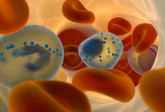Biosimilars/Research
|
Posted 30/03/2018
The potential value of biosimilars is dependent on patient access to originator biologicals in a given country. If the originator biological is reimbursed without any volume and access restrictions, the main objective of using biosimilars is to generate savings in health expenditures without compromising health outcomes. This disinvestment scenario is mainly applicable for higher income countries. If the original biological product is reimbursed with volume and access restrictions, the main objective of biosimilars is to treat more patients from the same healthcare budget, and hence generate more health gain. This special investment scenario is applicable for lower income European Union (EU) Member States and other middle-income countries. If the originator biological is not reimbursed at all, more affordable biosimilars may create an opportunity for public reimbursement, however, incremental budget is needed to generate more health gain. This investment scenario is applicable for low-income countries [1].






















